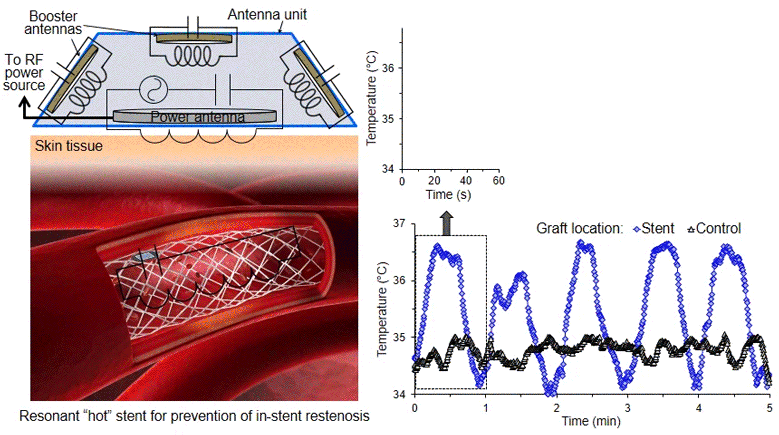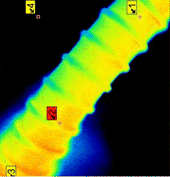
Stenting is a common approach to treating atherosclerosis, the main pathology that leads to cardiovascular disease causing thousands of death each day. Despite its proven efficacy, the long-term results of stenting are still limited by re-narrowing of stented artery known as in-stent restenosis. Hyperthermia, a thermal therapy used to treat certain cancers, has been reported as a potential path to preventing restenosis through mild heating of stented arteries. Toward enabling a practical technology for hyperthermia restenosis treatment, this work presents a radiofrequency (RF) powered resonant stent system and in-vivo testing of the developed prototype. The stent, made of gold-coated medical-grade stainless steel, is designed to function as a RF resonator with an integrated capacitor microchip. Upon deployment with a balloon catheter, the stent device serves as an efficient wireless heater as part of the resonant power transfer system, transferring heat to the surrounding arterial walls when resonated using a tuned RF electromagnetic field supplied from the system. The wireless power transmitter includes omnidirectional booster antennas that enhance power delivery to the implanted stent. The stent device is packaged with 40-µm-thick Parylene C film to minimize electrothermal damping in a conductive liquid like the blood. The in-vitro tests of the system prototype reveal a temperature increase of 3.3 C in the stent coupled in a flow loop of physiological saline with a flow rate relevant to the condition of coronary stenosis. Using swine models, the system demonstrates RF heating of the stent devices expanded to different diameters, in live blood stream, showing temperature rises of up to 2.6 C in a consistent and repeatable manner. These promising results bring the technology one step closer towards clinical realization of wireless thermal therapy of in-stent restenosis.

